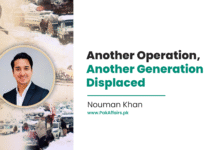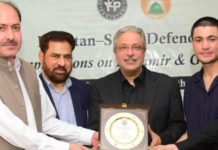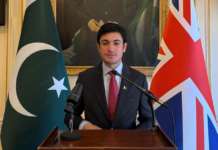
The dynamics of regional and global politics since the conclusion in spring 2020 of the Doha Accord, the peace deal between USA and the Taliban, have been altering very fast.
Analysts are finding it hard to assess what lies ahead for Afghanistan, and who will win the ongoing tug of war for the control of power in Afghanistan. Afghanistan is indeed a war-torn country, deeply divided politically, ethnically and on the basis of sectarianism. Moreover, there are huge stakes of the regional as well as global super and great powers in Afghanistan. USA’s powerful adviser is the Afghan-born American naturalized Zalmay Khalilzad, who has also served as his new homeland’s ambassador to Afghanistan. Little change is likely to be approved in Afghanistan unless he approves. Who will now govern Afghanistan, and how it will be governed, will determine the future of Afghanistan as America withdraws from the country or, at least, reduces much its direct presence militarily, politically and economically there.
At least three actors wield power in Afghanistan in one way or another: President Ashraf Ghani being the face of the Pushtoon nationalists; Chief Executive Abdullah Abdullah (the country’s deputy leader) represents the non-Pushtoon Afghans in the northern region of Afghanistan; and then the Taliban. It should also be borne in mind that historically the ethnic divide in Afghanistan has not been as outspoken as it has become today. However, there have always been differences among several groups, based on language and culture, especially the Pashtoon speaking and the Dari speaking, and other smaller groups. The majority of Afghans are religiously conservative Muslims, yet, there are also liberal and more secular groups. The country has been massively influenced by outsiders for long, including the Soviet Union in the 1980s.
Being in majority and having a sense of superiority in the country, the Pushtoon group has a spirit of nationalism, which culminated in the presidency of Ashraf Ghani. In his two presidential elections, he won exclusively in Pushtoon areas but secured very few votes in Northern Afghanistan where other ethnicity dominate. This instilled a sense of subjugation in the people of Northern Afghanistan. Pushtoon nationalists in Afghanistan are committed to power and democracy owing to their numerical majority. As democracy would save them imposition of rule over them by the Islamist’s, notably the Taliban, and non-Pushtoons would remain marginalized in the power game of politics in Afghanistan. Hence, that could pave a way for progress, peace, and prosperity.
Non-Pushtoons on the other hand fear the domination by Pushtoons; and all the other ethnicities in Afghanistan have formed a sort of alliance supporting Abdullah Abdulla in the previous two presidential elections. However, just like President Ashraf Ghani, Abdulla’s vote bank in the Pushtoon areas is equivalent to none. Abdullah and his allies do believe in democracy and deem it as a means of peace and prosperity, but they are seeking a more assertive role in the administrative and executive branches of the country than their number is providing them. These two groups, the Pushtoons and non-Pushtoons, pose a greater threat to the political stability of Afghanistan.
On the other hand, the Taliban want the whole pie and are determined to rule the country the way they ruled before the invasion of the U.S.
Given that the Taliban have control of a large area of Afghanistan, having in constant guerrilla warfare for last two decades, and having secured a title of winner in the Doha Accords for the time after the withdrawal of America, having to confront a much weaker power, the Taliban will eventually be in a position to grab the reins of power once more. But, it also depends on how regional and global powers continue their involvement in the Afghanistan. Although the intra-Afghan peace process as authorized by the Doha Accords should be Afghan owned, the external powers should make sure that the outcome must be in the best interest of the Afghans, Afghanistan, and the world at large. Yet, it seems evident that the Taliban again play a major role. Also, without the support of the Pashtoon, many of whom Taliban, there will be now peaceful future. The people of Northern Afghanistan and minority groups elsewhere must also be part of the new Afghanistan.
Alam zeb khan.
Writer recently completed BS-International Relations
(August 2020)





Very well written Malak saib. Mustafa this side.